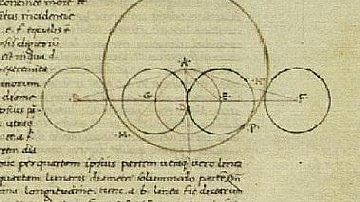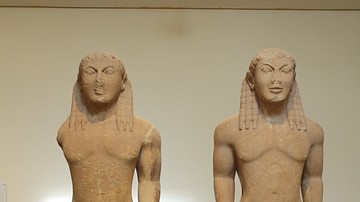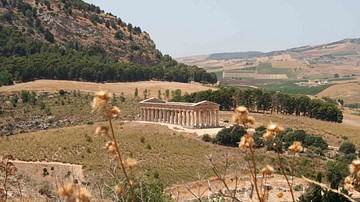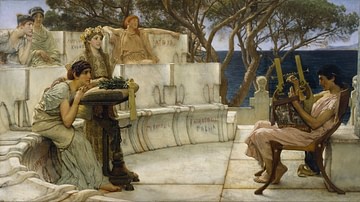Search
Search Results

Definition
Greek Fire - The Byzantines' Seceret Weapon
Greek Fire was an incendiary weapon first used in Byzantine warfare in 678 CE. The napalm of ancient warfare, the highly flammable liquid was made of secret ingredients and used both in catapulted incendiary bombs and sprayed under pressure...

Video
Shinto: Ancient Japanese Religion
Practiced by nearly 80% of the population, Shinto is the largest religion in Japan. This video explains the religious practices of Shinto and its ancient roots. Written by: Jennie Butler Edited by: Alex Esteves Produced by: Cailyn Bradley...

Video
Religion in Ancient China
This video visually explains the early religion of ancient China, including cosmogony and doctrines.
WLIT 1113 Presentation - Religion in Ancient China (2015)— Created using PowToon.

Definition
Greek Astronomy
Ancient Greek astronomy was the study of the universe to understand how it functioned and why apart from the established theistic model that claimed all things were ordered and maintained by the gods. Ancient Greek astronomers relied on observation...

Video
The Religion and Beliefs of Ancient China
This video discusses the various religions and beliefs of ancient China.

Definition
Greek Archaic Period
The Greek Archaic Period (c. 800-479 BCE) started from what can only be termed uncertainty, and ended with the Persians being ejected from Greece for good after the battles of Plataea and Mykale in 479 BCE. The Archaic Period is preceded...

Article
Greek Temples of Sicily
There are at least a thousand reasons to visit Sicily, the great island – indeed the largest in the Mediterranean – that forms the triangular football to the boot that is the Italian peninsula. They are all very good reasons, including amazing...

Video
Etruscan Religion: Influence on Rome
This video, originally related to a history research project, briefly describes Etruscan polytheistic religion as an overview. Further, it goes on to describe the influence of Etruscan religion on the future Roman civilization.

Collection
Great Ancient Greek Poets
The poets of ancient Greece are among the most famous in the world and established many of the forms still used by artists today. From the epic poetry of Homer to the more intimate works of Sappho of Lesbos, ancient Greek poetry has inspired...

Article
Greek Theatre Architecture
The ancient Greeks built open-air theatres where the public could watch the performances of Greek comedy, tragedy, and satyr plays. They then exported the idea to their colonies throughout the Aegean so that theatres became a typical feature...